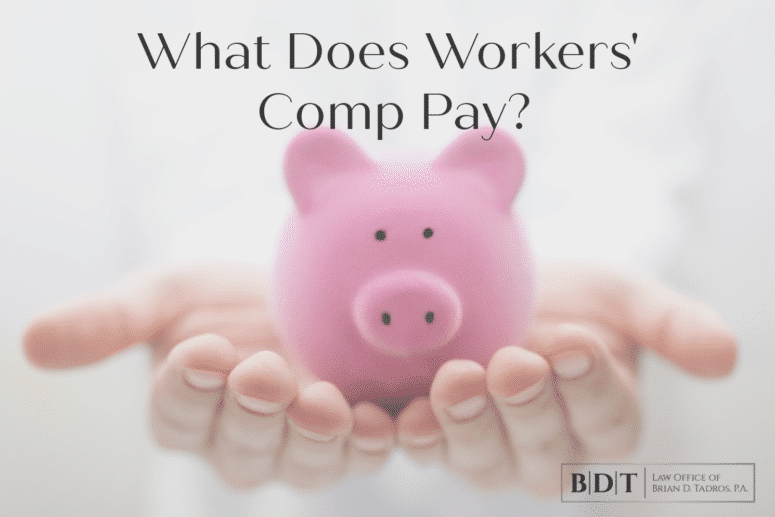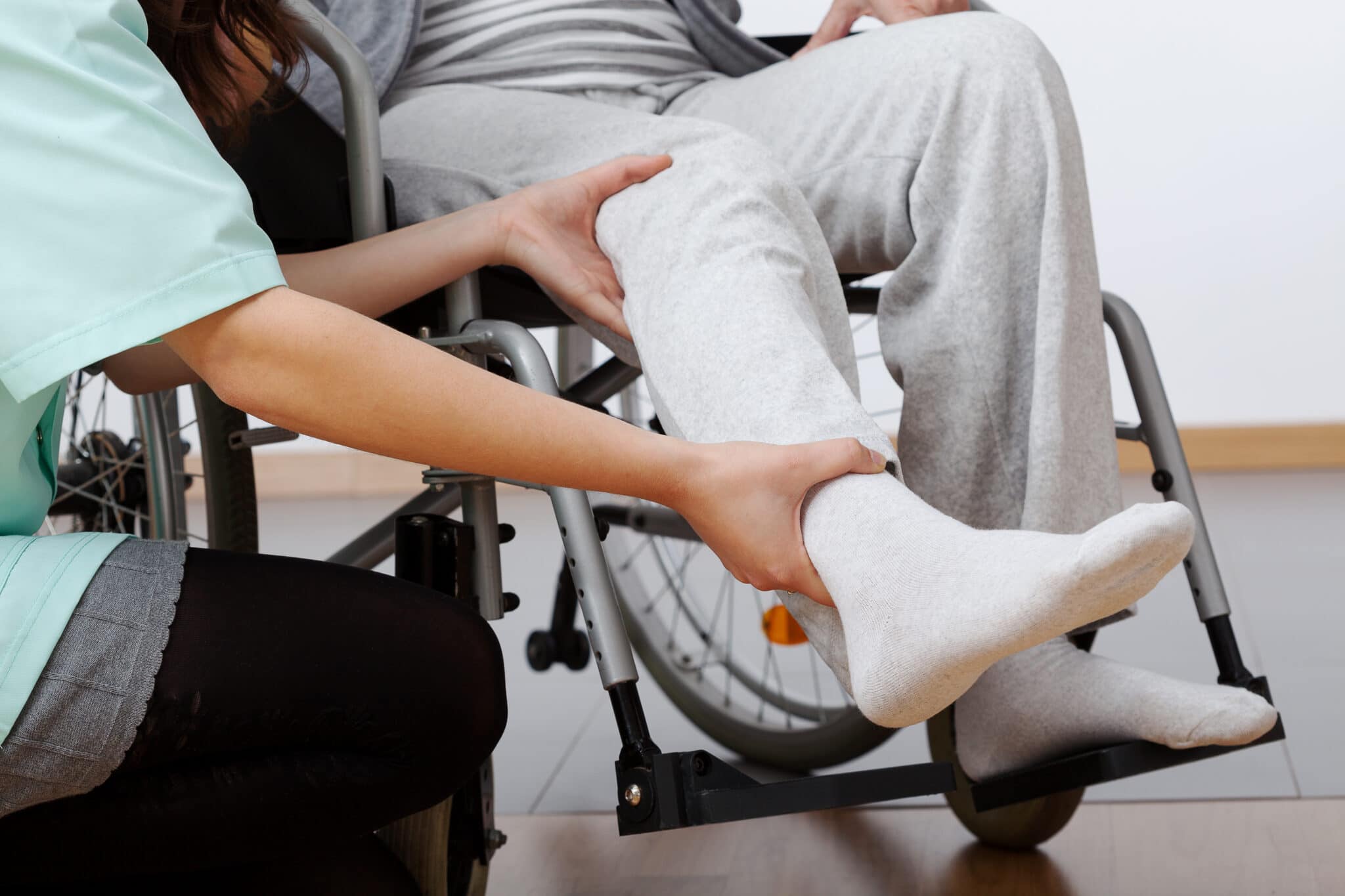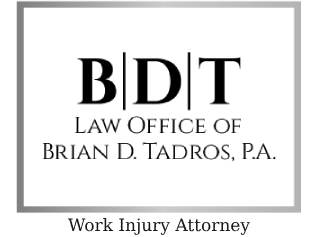
If you’ve been seriously injured in a workplace accident, the last thing you want to be concerned about is how you’re going to pay your bills.
Workers’ compensation benefits are designed to cover a portion of your lost wages (among other things) in the event a workplace accident has rendered you unable to perform your regular work duties. But what does workers’ comp pay? And is it enough to pay your bills?
If you are unable to work for 21 days or less, you won’t get paid for the first seven days of lost wages. You should receive your first check within 21 days of reporting your injury, assuming that you have been placed on either a “no work” or “light duty” work status and are losing wages.
If you are on a “no work” status, these payments are paid at your compensation rate (CR); If you are on light duty restrictions and are losing wages, your payments are calculated by a formula determined by your Average Weekly Wage (AWW).
Average Weekly Wage (AWW)
Your Average Weekly Wage, or AWW, is an average of your earnings prior to the workplace accident. It is calculated by adding all of your gross wages earned during the 13 calendar weeks before the week of the accident and then dividing that total by 13.
Your AWW is not the same as your workers’ compensation benefits, however. Once your Average Weekly Wage has been determined, workers’ comp will pay a portion of that amount depending on the extent of your illness or injury.
Injured at Work In Florida?
Compensation Rate (CR)
Your compensation rate is 66 2/3% of your average weekly wage. However, there is a minimum and maximum value you can have for your compensation rate as determined by the Division of Workers’ Compensation.
Each year, the Division makes a determination of what the minimum and maximum compensation rate will be for the year. As of January 1, 2019, anyone injured during the following 365 days will earn no less than $20 and no more than $939 a week.

Temporary Total Disability (TTD)
If your authorized doctor has determined that you cannot return to work, you will be paid temporary total disability benefits. These benefits are paid out at the injured worker’s compensation rate, or 66 2/3% of the employee’s AWW.
For example, if your AWW is $100, you would receive $66.67 per week. For severe injuries—such as paralysis or blindness—you are entitled to 80% of your AWW for six months, with no maximum.
Florida’s Division of Workers’ Compensation offers calculators on its website as an easy way to see what your benefits should be.
Temporary Partial Disability Benefits (TPD)
If you are on light duty work restrictions, the first question is whether you are earning at least 80% of your average weekly wage. If so, you are not owed any money from the insurance company.
However, if your wages fall below 80% of your average weekly wage while you are on light duty work restrictions, (subject to potential defenses), the insurance company may owe you temporary partial disability (TPD) benefits.
These benefits are calculated by taking 80% of your average weekly wage, subtracting your earnings while on light duty, and multiplying that sum by 80%.
The second question is whether your employer is able to accommodate the light duty restrictions set by your authorized treating physician.
As an example, let’s say Bob was put on light duty that his employer is unable to accommodate. With an average weekly wage of $100 and no current income from work, he would receive $64 a week from the insurance company.
100 x 80% = 80
80 – 0 (no earnings) = 80
80 x 80% = 64.

If Bob’s employer is able to give him work at a rate of $20 a week, he would receive that $20 from his employer and another $48 from the insurance company, for a grand total of $68 a week.
100 x 80% = 80
80 – 20 (actual wages earned) = 60
60 x 80% = 48
When do temporary benefits end?
If you are receiving temporary total disability payments (TTD) or temporary partial disability benefits (TPD), those benefits will last until:
- Your doctor says you can return to work full duty;
- Your doctor says you have reached Maximum Medical Improvement (MMI) and can’t expect to recover further; or
- You have reached the maximum time limit for collecting workers’ comp payments.
Previously, Florida law set a 104-week cap on workers’ compensation benefits. However, the Florida Supreme Court determined this was unconstitutional and set a 260-week limit that applies for people who haven’t yet reached MMI after 104 weeks.
Permanent Impairment Benefits
In some cases, your doctor may decide that you have reached Maximum Medical Improvement (MMI), but do still have some loss of function. If you are still able to work in some capacity, your doctor will assign you an impairment rating.
Your impairment rating—which is the percentage of your body as a whole that is permanently injured—is then used to determine how much you will receive. If you know your impairment rating, you can use this calculator from Florida’s Division of Workers’ Compensation to find out how much you are entitled to.
Permanent Total Disability Benefits
If you unable to return to work at all (even light-duty work), you can receive permanent total disability (PTD) benefits at the same rate as your temporary total disability benefits until you reach age 75 or—if the accident occurred after age 70—for no more than five years.

However, the insurance company can avoid payment of PTD benefits if they can establish that you are capable of performing at least a sedentary (sit-down) job within a 50-mile radius of your home. Only the most severe injuries will qualify an injured worker for these classification of benefits.
Additional Benefits
In addition to compensating you for lost wages, workers’ comp benefits cover other things related to your care and recovery.
Most importantly, your medical care is covered. Your authorized treating physician will bill the workers’ compensation insurance carrier directly, so you don’t have to worry about finding the funds and getting reimbursed.
In some cases, you may also be entitled to vocational rehabilitation. If you are unable to return to your old position after you have reached MMI, you can receive training and education to switch careers.
And in the tragic event of a work-related fatality, workers’ comp will pay death benefits (including funeral and burial expenses) to the employee’s surviving spouse and dependents.
It should be noted that pain and suffering cannot be compensated under Florida law.
Conclusion
If you have suffered a work-related accident or illness, the last thing you should be asking yourself is “What does workers’ comp pay?”
At the Law Office of Brian D. Tadros, we act as educator and advocate for our clients so that they can focus on rest and recovery. If you are being denied a workers’ comp claim or feel that you aren’t getting the full amount of benefits you are entitled to, schedule a free consultation today.

